Our dedication to Racial Equality and Social Justice (RESJ) spans decades. Learn more about our RESJ Initiative
Teaching Special Education
The exceptional people who choose careers in special education serve as vital resources to students with disabilities, to the parents and families of those students, and to educational colleagues. Through a deep understanding of disabling conditions and their implications for instruction and learning, plus practical expertise in helping students learn in ways that make sense for them, special education teachers create Individualized Education Programs (IEPs) for each special education student. Special education master’s programs teach the knowledge and hands-on skills to do this important work.
What Do Special Education Teachers Do?
Licensed special education teachers focus on strategies and adaptations that help make academic curriculum accessible to students at different levels of special education needs:
- Students with moderate disabilities
- Students with severe disabilities
Typically, special education teachers also concentrate their expertise in helping students based on their age or academic grade level:
- Pre-kindergarten through eighth grade
- Fifth through 12th grade
Cambridge College gives you the choice between two master’s in special education. One is for Teachers of Students with Moderate Disabilities (PreK-8), and the other is for Teachers of Students With Moderate Disabilities (Grades 5-12).
How Do Special Education Teachers Help Students?
Everything special ed teachers do must meet federal and state guidelines. Typically, they have the following competencies and responsibilities in their careers in special education:
- Understand child development in these and other key areas: cognitive, social, emotional, language, and physical.
- Modify the curriculum and classroom environment.
- Use augmented or adaptive technology to help make learning, communication, and academic progress possible.
- Implement lesson plans, where measurable assessments can be made.
- Support student success through active and reflective collaboration with students, families, teaching and administrative colleagues, and providers of any additional resources within the community.
Even if you’re already a licensed teacher, the master’s degree in special education at Cambridge College requires 300 hours of practicum experience in teaching students with moderate disabilities. These hands-on experiences are vital for your professional preparation and confidence after graduation.
Learn more about how to become a special education teacher
Where Do Special Education Teachers Work?
In most cases, special ed teachers work in these professional settings:
- Schools or school systems, both public and private
- Community organizations and private special needs providers that serve individuals and families
- Preschools and daycares
- Government agencies at both the state and local levels
- Centers that provide residential care for a variety of populations
- Health care organizations or providers, especially those that focus on children where diagnoses of severe or moderate disabilities typically happen
In addition, earning a master’s degree in special education prepares you to provide adaptive and assistive instruction in settings outside typical primary or secondary education settings, including job training programs and other non-traditional educational settings where people with moderate disabilities may need additional support to succeed.
Before and after graduation, you’ll be able to connect with fellow students at Cambridge College to begin building your professional network so that you’ll have access to information about where they best jobs are and when they come open.
Read more! Special education teacher salary information
Learn More About Getting Your Master’s in Special Education
Cambridge College offers an accredited and affordable Degree in Special Education (Teacher of Students With Moderate Disabilities) that includes the 300 hours of classroom experience to prepare you to become a special education teacher, even if you’re not already a licensed teacher. Contact a member of our admissions team to take the next step.


